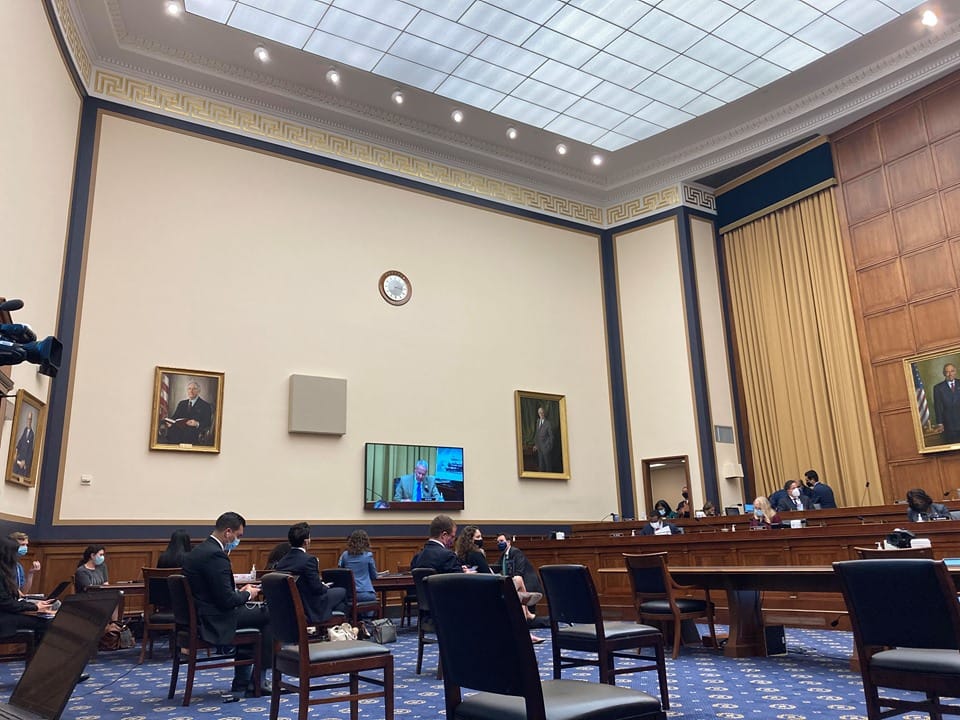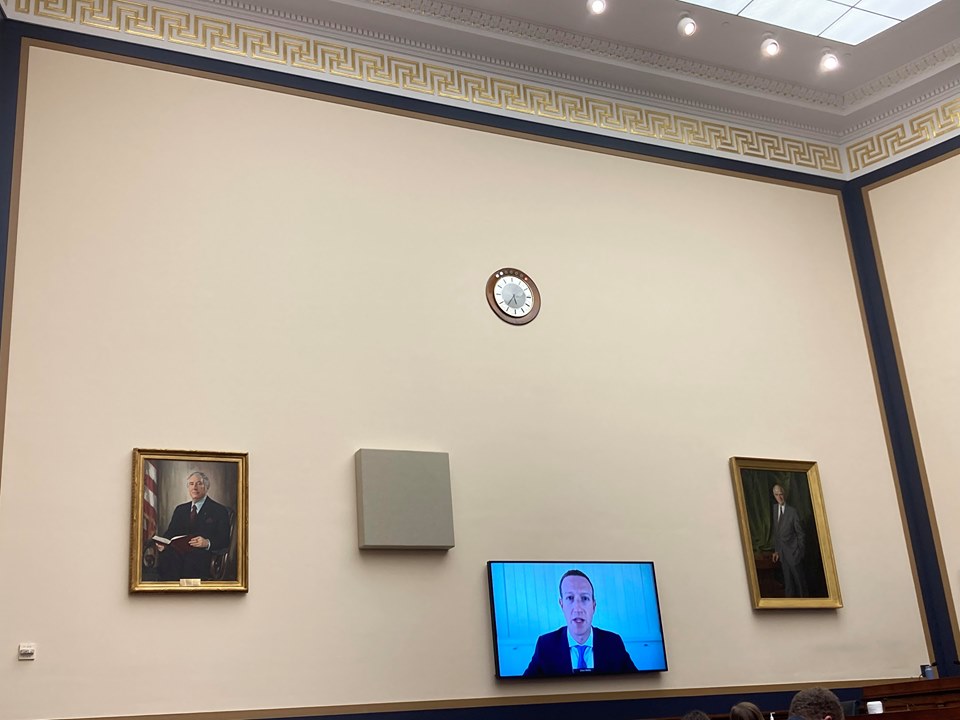Big Tech Must Be Broken Up, says House Antitrust Subcommittee Chairman
July 30, 2020 – Several of the companies featured in Wednesday’s blockbuster big tech hearing need to be broken up, House Judiciary Antitrust Subcommittee Chairman David Cicilline, D-R.I., said at the conclusion of the nearly six-hour hearing. “This hearing has made one fact clear to me: These compa
Elijah Labby

July 30, 2020 – Several of the companies featured in Wednesday’s blockbuster big tech hearing need to be broken up, House Judiciary Antitrust Subcommittee Chairman David Cicilline, D-R.I., said at the conclusion of the nearly six-hour hearing.
“This hearing has made one fact clear to me: These companies as they exist today have monopoly power,” he said, speaking of Amazon, Apple, Facebook and Google. “Some need to be broken up. This must end.”
And – even if breakup of any of these four companies is a way off, or ultimately unlikely to happen – regulation of areas of data usage and privacy appears much more likely.
The long-awaited meeting had no shortage of loaded questions, contentiousness, and fiery theatrics.
The hearing remotely brought together CEOs from four of the world’s most powerful internet companies. Representatives grilled the executives on alleged anti-competitive practices.
Yet the Judiciary Committee hearing room was largely empty, save for around a dozen reporters following social distancing guidelines. Yet from the earliest moments of the hearing, it was clear that the CEOs were in for an impassioned interrogation.
Chairman Cicilline began by noting that a conflict exists between Google’s mission to provide relevant information to those searching for it and its interest in keeping users on its platform and affiliated sites for as long as possible.
Similar lines of questioning ran throughout the day, spanning topics from the development requirements of Apple’s App Store to Amazon’s prioritization of so-called “essential products.”
At times, the lines of questioning gained a greater urgency.
Human rights in China, and in America
Rep. Ken Buck, R-Colo., mentioned several times the plight of the Uighur Muslims in China’s Xinjiang region, drawing ties between Google’s activities in China and the human rights abuses found there. Rep. Matt Gaetz, R-Florida, similarly hit Google for such alleged misdeeds. Rep. Jordan said that the World Health Organization “obviously shills for China.”
Their comments contribute to an increasingly contentious governmental relationship with China.
“Cultural war” issues in America also factored into the discussion.
Rep. Kelly Armstrong noted that law enforcement requests for “geofence warrants” – which compel tech companies to hand over individuals’ private data to police bodies – had risen exponentially. Such policies have been objects of concern in the wake of increased protests surrounding the death of George Floyd.
The CEOs attempted to downplay the roles their companies play in the global technology arena. They did just that.

Steve Cook of Apple said that Apple did not control a majority of the market share in any of their product categories, Mark Zuckerberg of Facebook said that Apple had a more widely-used messaging service, and Jeff Bezos of Amazon said that Amazon did not do several of its services as well as the other companies featured.
However, if their goal was to convince the congressmen that their companies were not sufficiently powerful to perform the misdeeds of which they were accused, the representatives did not seem convinced.
Are changes to the antitrust laws necessary?
No member of Congress made a clear case that changes were necessary to the United States’ antitrust laws. Indeed, Rep. James Sensenbrenner, R-Wisconsin, said that there is no need for change in that area.
Sensenbrenner instead endorsed utilizing the laws on the books. Still, member of Congress criticized the Federal Trade Commission’s past merger approvals.
With no innovative legislative solutions resulting from Congress and no real admittance of anti-competitive practices from big tech CEOs, their appearance before lawmakers turned out to be less promising than many viewers may have hoped.
The hearing failed to produce any legislative proposal to break up tech monopolies, failed to fully address the impacts these businesses have on consumers, and got sidetracked over concerns on content moderation, foreign influence, and free speech.
Members of Congress were prepared with legitimate evidence of anti-competitive business practices, but failed to offer a solution to creating more competitive environments.
Election interference claims against Google
Reps. Jim Jordan and Greg Steube said that they were concerned about electoral interference and alleged anti-conservative bias at Google and Facebook.
Jordan inquired of Google’s Sundar Pichai whether he and his company would conspire to sway the election in favor of Joe Biden. Steube said that he heard multiple reports of his congressional office’s emails getting lost in the spam folders of those in his district that had long expressed interest in supporting him.
However, there was inter-representative conflict as well.
When Jordan raised concerns of electoral interference at Google, Rep. Mary Gay Scanlon, D-Penn. said he was dealing in “fringe conspiracy theories.”
This exchange devolved into Cicilline shouting and attempting to gavel Jordan back into order, with Jordan shouting back and Rep. Jamie Raskin yelling at Jordan to “Put on your mask!”
But while the hearing was long on drama, it was relatively short on commitments from the executives. The CEOs pledged to further ethnic inclusion and equity in their companies, but said that they would follow up with the individual representatives’ offices about matters that may have proven too risky to speak about publicly.
Editor’s Note: Reporter Jericho Casper contributed to this story.









Member discussion